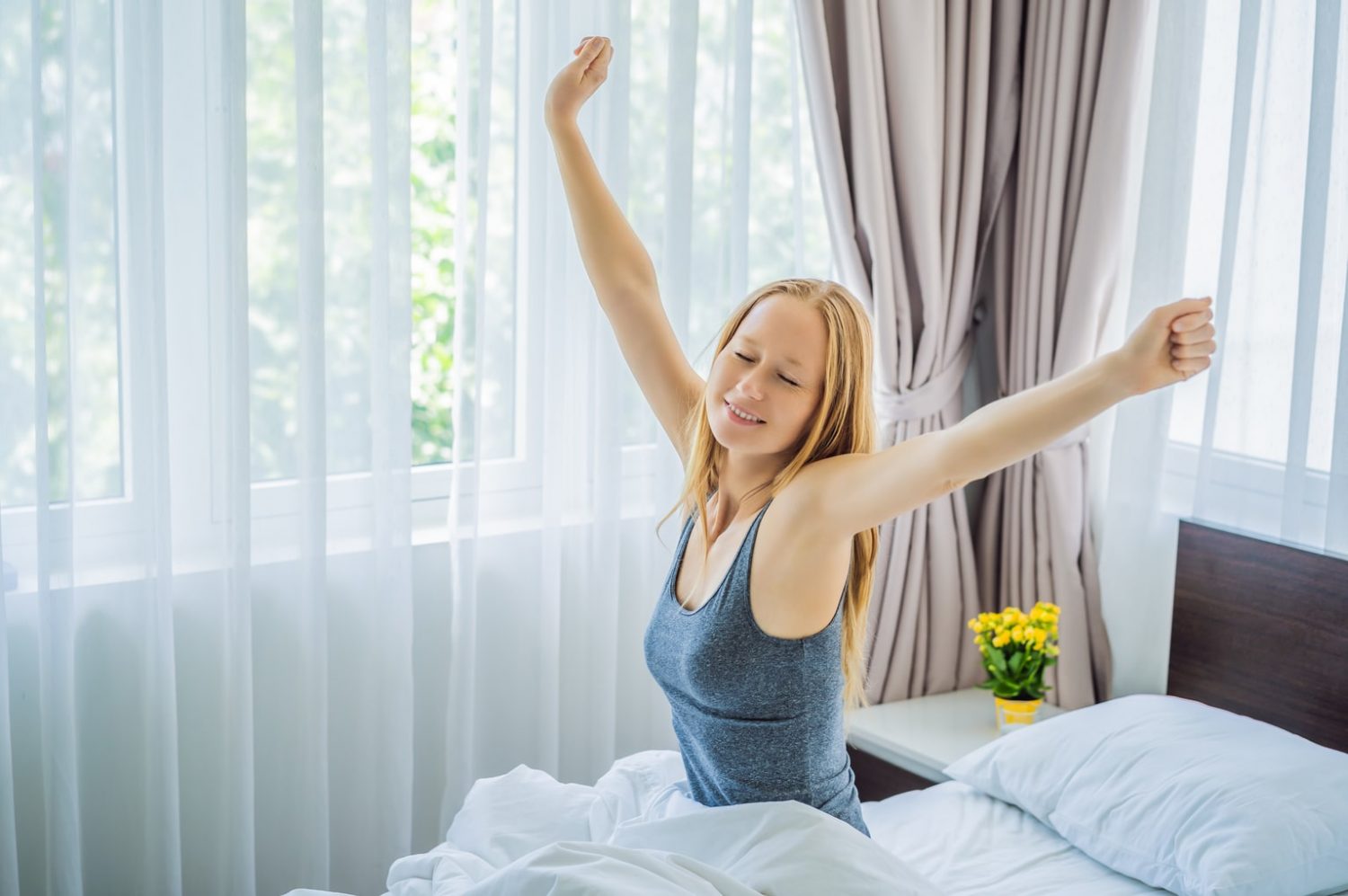Sleep is essential to our physical and mental health. Sleep affects our ability to maintain attention, understand what we are reading or writing, and use language. Some studies even show that sleep has a direct effect on the immune system.
However, despite sleep being important, a large number of people find themselves constantly lacking quality sleep. They end up feeling sleepy, tired and grumpy the whole day. Fortunately, the changes you need to make to improve your sleep are simpler than you may expect.
Catching a good night’s sleep looks unattainable when you are wide awake at 4 a.m. Yet, you have more control over the nature of your sleep than you realize. Are you drained from tossing and turning the whole night? These five strategies can help you gain quality sleep and be more productive and energetic during the day.
Tips to Improve Sleep
1. Stick to a Sleep Schedule and Routine
Being in sync with your body’s natural wake-sleep cycle, also known as the circadian rhythm, is one of the best strategies for better sleep. Think about it. If you maintain a regular sleep-wake schedule, you will feel much energized or refreshed in the morning. Why?
It’s because sleep schedules help your body’s internal clock to optimize the quality of sleep and wake you up on time. Now, choose a convenient bedtime and make sure to go to bed at that time for a whole month. The changes will be amazing.
2. Avoid Blue Light Before Bed
Exposure to light during the day is beneficial in helping you get better sleep at night. Be as it may, exposure to blue light during the night has the opposite effect. So what’s the reason?
Well, blue light affects the circadian rhythm and tricks your brain into thinking it is still daytime. As a result, melatonin — the hormone responsible for sleep in your body reduces. In turn, this makes you restless and sleepless.
For those who might not already know, sleep blue light comes mostly from electronic devices such as smartphones, laptops, TVs and computers. But here’s the good news. There are many ways to reduce blue light exposure. The best way is to keep off electronic devices at least two hours before sleep. However, if this is not possible you can:
- Download apps to reduce blue light exposure
- Wear glasses that reduce blue light exposure
3. Physical Activity During the Day
People who exercise regularly during the day, get better sleep at night. Regular physical activity improves the symptoms of sleep apnea while increasing the amount of time you spend in a deep sleep.
Exercise helps speed up your metabolism, increases body temperature while stimulating hormones like cortisol — a hormone helping deal with stress. Make sure to work out in the morning or afternoon hours since exercising too close to bedtime will affect your sleep.
If it is impossible, try finishing vigorous workouts at least three hours before bedtime. In any case, low-impact exercises like gentle stretches or yoga in the evening can help improve sleep.
4. Maintain a Healthy Diet
Believe it or not, food plays a huge part in how you sleep. Your daytime eating habits and nighttime snacking habits can either promote or impede sleep. For example, caffeine intake can cause sleep problems up to 10 hours after consuming it. Caffeine stimulates your nervous system, which stops your body from naturally relaxing at night.
Similarly, big meals within two hours of your bedtime can cause stomach problems which affect your sleep. Sugars and carb intake during the day also triggers wakefulness at night, which pulls you out of deep sleep stages.
So, maintain a better diet full of vegetables and proteins for the best sleep. It’s that simple.
5. Have a Consistent Sleeping Environment
Your bedroom also plays a big part in the quality of sleep you have. As such, you need to set similar conditions for sleep every night. For example, sleeping with music playing on sometimes and without during others might mess up your sleep cycle. For this reason, you need to set the right sleeping conditions for every night. Don’t turn your bedroom into a home-office for receiving calls during the night. Instead, reinforce the idea that the bedroom is only for sleep.
Know When to Contact Your Doctor
Almost everyone has occasional sleepless nights. However, if you often have trouble getting quality sleep despite trying these five tips, you might need some medical intervention. Underlying causes might be the cause of insomnia. And identifying or treating them will help you improve your sleep.
As Dallas-Fort Worth’s leading concierge medicine provider, Diamond Physicians always goes above and beyond the call of duty when it comes to customer service. As a private member, you have unlimited access to the support, advice, and reassurance of your own private general practitioner.
For more information, contact us today.
